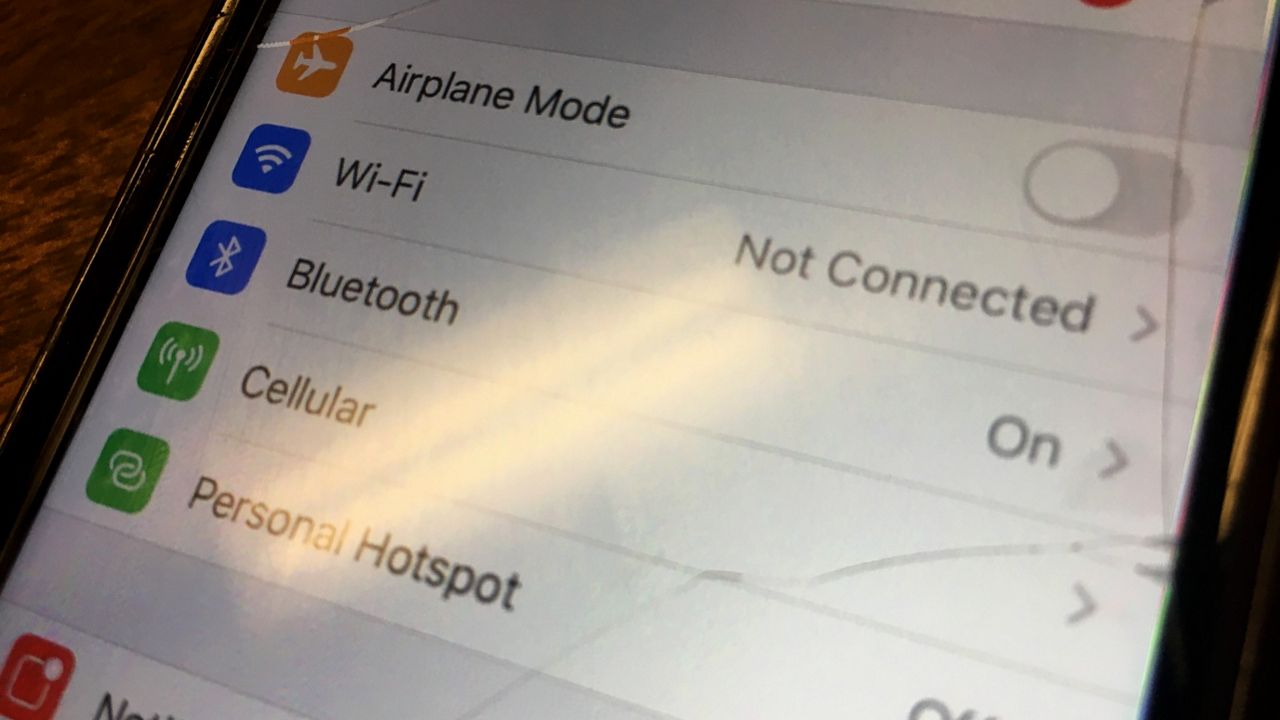TAMPA, Fla. — Bluetooth technology is expected to play a role in efforts to track down people who may have come in contact with those diagnosed with COVID-19.
- Part of USF's COVID-19 Rapid Response Research Grants program
- Privacy concerns include protecting ID of those diagnosed with virus
- Apple, Google have said they plan to enable Bluetooth to help reduce virus spread
- COMPLETE COVERAGE: Spectrum News | CDC | Florida Dept. of Health
Researchers with the University of South Florida are looking into how efficient those strategies are and how well they protect users' privacy.
"The privacy concerns are evident in terms of, for example, if I want to protect the information that I've been infected, I do not necessarily want everybody to learn that, and so these are the kinds of things we pay special attention to," said USF Asst. Professor of Mathematics and the project's principal investigator Jean-Francois Biasse.
Contact tracing has been touted as playing a role in reopening the country. One example of how Bluetooth can play a role: Apple and Google announced earlier this month they're teaming up to enable the technology for use in apps from public health entities for "privacy-preserving contact tracing".
The idea is that users will self report if they're diagnosed with the virus and other users who came in close proximity to them within a certain time frame will be alerted that they may have been exposed.
"Each phone broadcasts some information, and that information can be received by another phone, much like when you have a Bluetooth earphone, for example, or Bluetooth speaker," Biasse said. "Only needs a little bit of information to travel from one phone to another to establish that two people were in close proximity, and that's really the essence of all the proposals of apps that offer to leverage the Bluetooth signal."
Privacy when using this technology isn't just a concern for researchers. The American Civil Liberties Union released a white paper on April 8 entitled "The Limits of Location Tracking in an Epidemic". It notes "location data contains an enormously invasive and personal set of information about each of us, with the potential to reveal such things as people's social, sexual, religious, and political associations."
Key questions to consider according to the white paper include what data is being collected, who has access to the data, how it's used, and whether the information will be destroyed once it's no longer useful.
Biasse said part of his project will involve developing an app, and decisions on data collection will be something his team has to address.
"For sure, the app needs to collect the information that somebody's been infected. The real trade-off here is how much of someone's identity is collected at the same time," Biasse said.
Biasse stressed this is an ongoing project meant solely for research.
This project is one of 14 to receive funding as part of USF's newly created COVID-19 Rapid Response Research Grants program. The school is investing $340,000 into projects aimed at finding potential treatments, new technologies, and social mitigation strategies to aid in the fight against the virus.
The Joint Information Center on COVID-19 for the State of Florida told Spectrum News that it's working on contact tracing of its own. It has 500 infectious disease epidemiologists working on the response to COVID-19, including 223 hired during the response. In addition to English, there are those that speak Spanish and Creole.
The JIC said when FLDOH learns that someone's tested positive for the virus, an extensive epidemiological investigation takes place in conjunction with the CDC. The goal is to identify those who came into contact with the person. Those individuals are then notified by their county health departments and instructed to self-isolate for two weeks.



